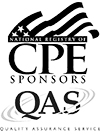Remote Control: Mitigating Fraud in the Hybrid Work Environment (On-Demand Webinar)

Advanced
Online
1:39:59
Description
Temporary work conditions brought on by the pandemic created an opportunity for companies to revise their policies. Some businesses shifted to hybrid attendance or even eliminated office space altogether. However, others that chose to fully return to the office without proper evidence or risk-based planning created a purgatory in which neither their lockdown nor return-to-office fraud risk management frameworks apply anymore.
This course covers how the pandemic and hybrid work affected the nature of internal misconduct, how organizations pivoted their fraud risk management frameworks to mitigate risk across departments and lessons learned from the pandemic. This course also explores how internal misconduct shifted across industries, where organizations’ controls lapsed and real-world examples of internal misconduct tied to literal and figurative instances of poor oversight.
Prerequisites
Working knowledge of internal risk management. Foundational experience in conducting risk assessments. Operational awareness of internal controls for risk mitigation.
You Will Learn How To:
Apply best practices regarding risk management oversight, internal metrics and reporting.
Differentiate the challenges of and recommendations for establishing an appropriate tone at the top and a culture of compliance across the organization.
Identify internal misconduct and counteractive controls to mitigate risk in similar circumstances.
Navigate the changing operational and fraud risk management frameworks and how those have shifted from traditional to hybrid work environments.
CPE Information
| CPE Credit: | 2 |
|---|---|
| NASBA Information: | Management Services |
| Advance Preparation: | None |
| Last Updated: | November 2023 |
| Delivery Method: | QAS Self-Study |
Presenters
Michael Schidlow, CFE - Presenter

Professor and Lecturer
Michael Schidlow is a compliance and risk management specialist with more than 15 years of experience in law, compliance, audit and consulting. He has held leadership roles with Bank of China, HSBC and Bank of America. His primary practice area is in fraud and anti-money laundering, utilizing an integrated approach to compliance, information technology, cyber-security, and internal ethics.
Schidlow is a Certified Fraud Examiner (CFE), licensed attorney and serves as a professor of criminal justice, cybersecurity and ethics.
Policies
CPE Credit
Please note: To be eligible for CPE credit, you must complete the final exam within one year of purchase date. You may only claim CPE credit for a course once.
ACFE Online Self-Study Courses
Features:
- 24/7 access to courses through your Internet browser
- Save time and quickly earn CPE credits with instant access, grading and printable certificate
- The flexibility to start or stop a course and pick-up right where you left off
- No additional shipping fees
Learn More about accessing your online self-study course
Learn More about online self-study courses and their features
System Requirements:
- Internet access: High-speed connection recommended
- Speakers required for video sound
 The Association of Certified Fraud Examiners, Inc. is registered with the National Association of State Boards of Accountancy (NASBA) as a sponsor of continuing professional education on the National Registry of CPE Sponsors. State boards of accountancy have final authority on the acceptance of individual courses for CPE credit. Complaints regarding registered sponsors may be submitted to the National Registry of CPE Sponsors through its website: www.nasbaregistry.org/.
The Association of Certified Fraud Examiners, Inc. is registered with the National Association of State Boards of Accountancy (NASBA) as a sponsor of continuing professional education on the National Registry of CPE Sponsors. State boards of accountancy have final authority on the acceptance of individual courses for CPE credit. Complaints regarding registered sponsors may be submitted to the National Registry of CPE Sponsors through its website: www.nasbaregistry.org/.
Ordering and Returns
Satisfaction Guarantee
If you are not 100% satisfied with any ACFE product, you may return it to us, provided it is in excellent condition, for a full refund of the item minus the cost of shipping. Toolkits and bundles may only be returned as a complete set.
Ordering & Returns Policy

